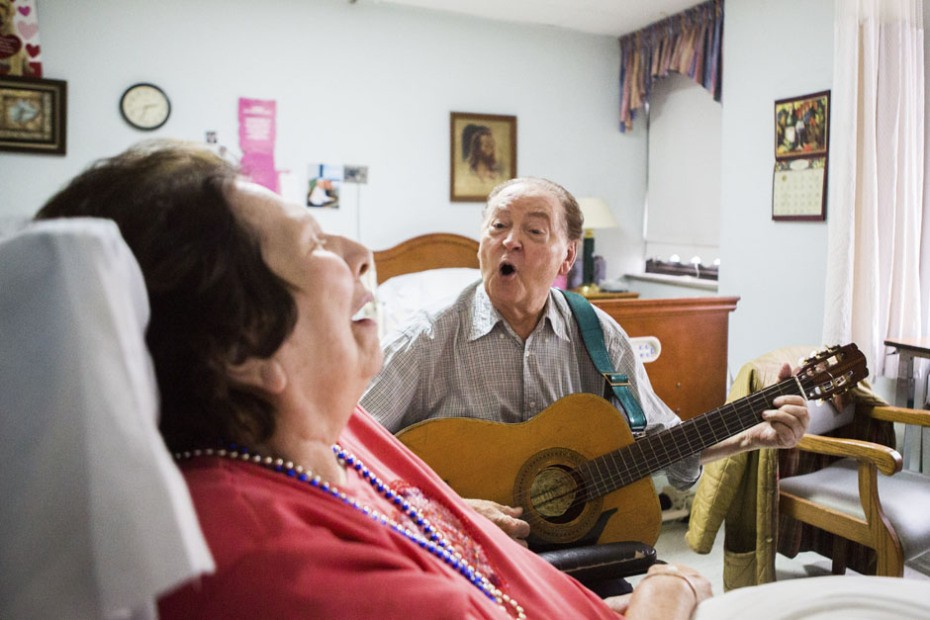Lillian Palermo, a 90-year old retired insurance executive, entered a nursing home after she began experiencing dementia, falls, and surgical complications. Her husband, Dino, who is eight years her junior, visits her every day. He sings her favorite songs, feeds her home-cooked Italian food, and pays a private aide to be there when he cannot.
Prior to entering the nursing home, Lillian prepared for incapacity by entrusting her beloved husband to be responsible for all decision making in her Power of Attorney and Advance Medical Directive documents. One day last summer, Dino was shocked to find a six-page legal document waiting on his wife’s bed. It was a guardianship petition filed by the nursing home, Mary Manning Walsh (located in New York), asking the court to give a stranger full legal power over Lillian and complete control of her money. A lawyer for the nursing home told the New York Times that guardianship “is a legitimate means to get the nursing home paid.”
According to the New York Times article, few people are aware that a nursing home can take such a step, but it is not uncommon. Interviews with veterans of the system and a review of guardianship court data conducted by researchers at Hunter College at the request of The New York Times show the practice has become routine. In fact, in a random sample of 700 guardianship cases filed in Manhattan over a decade, Hunter College researchers found more than 12 percent were brought by nursing homes; and that 29% of the requests for guardianship petitions in Manhattan came from hospitals and nursing homes combined. Although it is a drastic measure, nursing home lawyers argue that using guardianship to secure payment for care is better than suing an incapacitated resident who cannot respond.
In the Palermos’ case, the issue was resolved and the nursing home dropped its petition for guardianship after cashing Dino Palermo’s check for the outstanding balance. However, the anguish and stress Dino felt has not gone away. He recalled the fear, anger, and sleepless nights he experienced when he first read the nursing home’s petition “Who better than me, the husband for 47 years, that she gave power of attorney?” he asked. He also spent more than $10,000 in legal fees.
From the article, we cannot tell what type of long-term care planning the Palermo’s did, if any. The reason the nursing home sought to obtain guardianship was presumably because Mr. Palermo was not paying the nursing home bill. Had Mr. Palermo engaged an experienced Elder Law attorney to protect their assets and get his wife on Medicaid, he could have protected 100% of their assets and quickly obtained Medicaid coverage for his wife, presumably avoiding the need for the drastic measure taken in this case by the nursing home.
Can a nursing home seize control over patients to collect payment in Virginia, DC or Maryland? Yes. It happens regularly, but typically not when there is already an agent under power of attorney properly acting. And in this case, “properly acting” means hiring an experienced Elder Law Attorney to engage in Medicaid asset protection — protecting all of the assets of a married couple and obtaining Medicaid coverage for the nursing home spouse.
Medicaid Asset Protection
Medicaid Asset Protection is the process of protecting assets from having to be completely spent to pay for the devastating expenses of long-term care, while helping to ensure that you (or your loved one) get the best possible long-term care and maintain the highest possible quality of life, whether at home, in an assisted living facility, or in a nursing home. This process is also called Life Care Planning because it is designed to be an ongoing, life-long process.
Medicaid Asset Protection can be started any time after a person enters the “long-term care continuum,” meaning that a person is starting to need assistance with Activities of Daily Living (eating, dressing, bathing, toileting, transferring, and walking) or Instrumental Activities of Daily Living (such as cooking, cleaning, caring for pets, paying bills and managing finances). This type of planning can be started while you are still able to make legal and financial decisions, or can be initiated by a spouse or an adult child acting as agent under a properly-drafted Power of Attorney, even if you are already in a nursing home or receiving other long-term care assistance. In fact, the majority of our Medicaid Asset Protection clients come to us when nursing home care is already in place or is imminent.
If you are still healthy and not yet on the “long-term care continuum,” then the type of Medicaid Asset Protection Planning you should consider is our Living Trust Plus Asset Protection Trust, which is a simpler and less expensive method of Medicaid asset protection for clients who will most likely not need any long-term care for at least five years.
Nursing homes in the DC Metro area cost $10-12,000 a month. To protect your family’s hard earned money and assets from these catastrophic costs, the best time to create your long-term care strategy is before you actually need long-term care. If you’re over 65, we recommend that you begin your asset protection planning now. Even if you are currently receiving services for yourself or a loved one, it’s still not too late to plan.
If you have a loved one who is nearing the need for long-term care or already receiving long-term care or if you have not done Long-Term Care Planning, Estate Planning or Incapacity Planning (or had your Planning documents reviewed in the past several years), please call Farr Law Firm, P.C. at 703-691-1888 in Fairfax, 540-479-1435 in Fredericksburg, 301-519-8041 in Rockville, MD, or 202-587-2797 in Washington, DC to make an appointment for a consultation.
Print This Page













